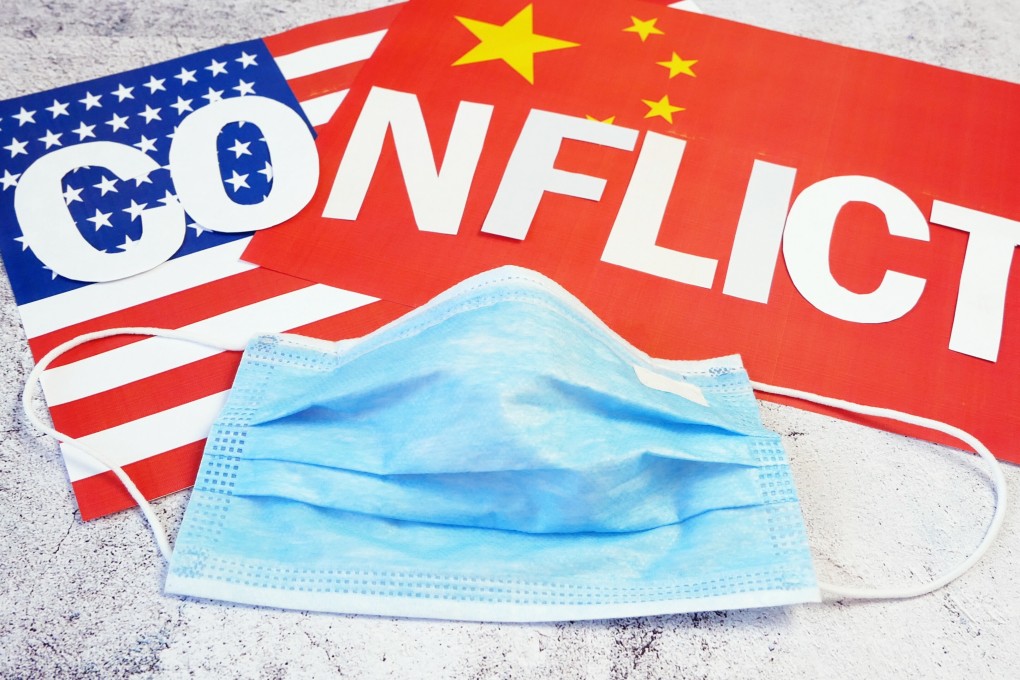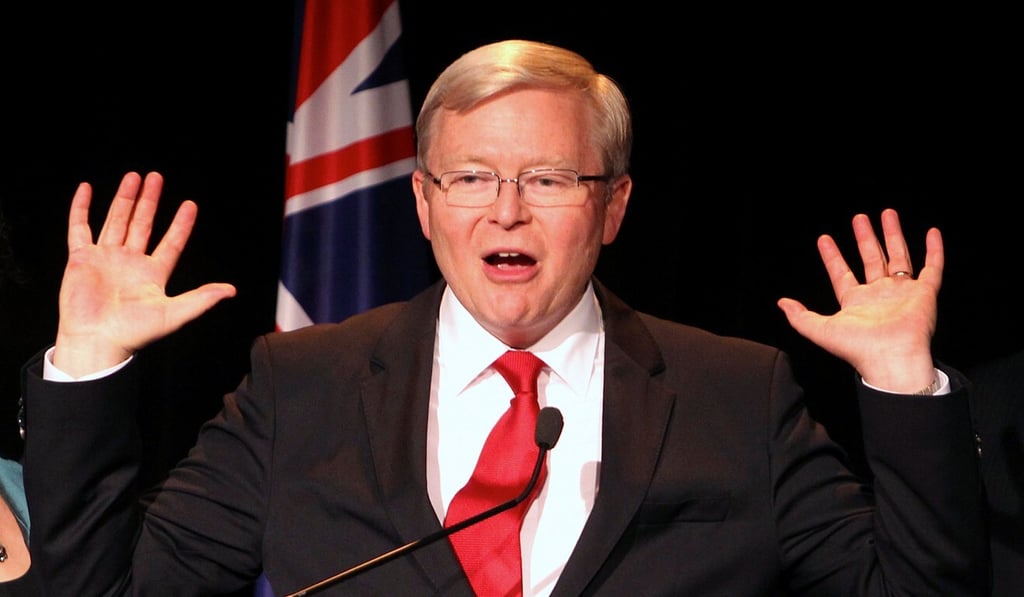US-China military clash a ‘real danger’ before November vote, warns ex-Australia PM Kevin Rudd
- A collapse in diplomatic engagement between the two superpowers has heightened the risk of an incident escalating into a crisis, the former PM said
- His remarks came in a wide-ranging talk he gave touching on the South China Sea, Taiwan, his successor’s failures and the dangers of severing China ties

“There’s a real danger that with a collapsing diplomatic relationship and an erosion of all forms of political capital between the two countries in their bilateral relationship, if you have an incident of a ship colliding with another ship, an aircraft colliding with another aircraft … then you have a crisis with an aircraft down or a ship as to what then happens,” Rudd said.
He made the remarks during an online event hosted by La Trobe University in Melbourne, titled “The China Challenge: Can a New Cold War be Avoided?”, which also featured Linda Jakobson, founding director of the China Matters think tank.

Rudd warned that “nationalist impulses” could escalate a future crisis, “particularly in the several months leading up to the election when the politics of high nationalism are alive and well, both in Washington and Beijing”.